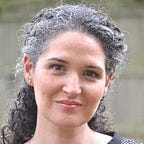Raising the Academic Bar for All Students
Across the country every year, millions of high school students enroll in the most challenging classes available to them, like Advanced Placement, International Baccalaureate, Cambridge AICE and other rigorous curricula. For those students, advanced courses are the keys that unlock opportunities — to attend prestigious colleges, to earn scholarships, and to develop the critical thinking skills they’ll use the rest of their lives. They’re also vehicles for economic mobility, opening pathways to careers in high-demand, high-salary fields, such as technology, science, engineering and math.
Leveraging Research
A 2020 report from The Education Trust found that while 15% of the nation’s high-schoolers are Black, they represent only 9% of enrollment in at least one AP course. This underrepresentation also applies to Latina/o/x students, who make up about one-quarter of students but only 21% of AP class enrollees.
There are myriad reasons for this disturbing trend. For starters, some schools with students from predominantly diverse ethnic and socio-economic backgrounds are less likely to offer advanced courses. And when they do, administrators are often less likely to recommend these courses to Black and Latina/o/x students.
Partnerships For Success
Since 2010, Seattle-based nonprofit Equal Opportunity Schools has worked with schools and districts around the country to add more than 53,000 students from diverse ethnic and socio-economic backgrounds to advanced high school courses. Through a $3 million grant, we’re helping EOS scale its approach even further.
EOS goes beyond simply identifying enrollment gaps — they work with schools to close them by delivering a research-based survey that helps schools better understand students’ aspirations, strengths, and barriers to succeeding in advanced coursework. Insights from the survey are used to design an action plan to engage students, cultivating a greater sense of belonging and a support system of trusted adults to ensure they succeed. The result is that more students show an interest in — and sign up for — advanced high school courses.
In short, EOS’s work tackles one of the biggest challenges in K-12 education: expanding equity and opportunities for diverse students, and they do this work by supporting schools in creating actionable plans to drive academic success.
Driving Systemic Change In Education
This work is connected to our focus of leveraging research to drive momentum for systemic change in education. EOS is generating proof that a more equitable approach to assessments — one that takes into account a community’s specific needs — is not only possible to implement but leads to improved academic outcomes for students. They’re also demonstrating how educators can leverage data to transform schools, centering student belonging and connection.
Students across the country are ready for the challenges that advanced coursework brings. They just need to be made aware of the opportunities open to them and feel encouraged to leverage academic resources to meet their personal goals.
Brooke Stafford-Brizard is vice president at the Chan Zuckerberg Initiative focused on grounding education in humanity and human development.
